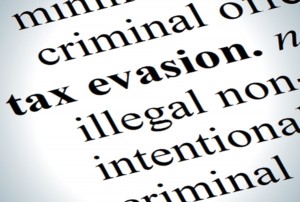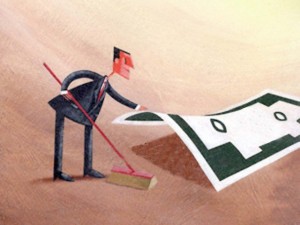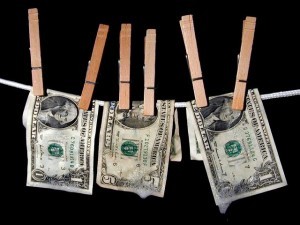The furore over the Panama Papers leak of 11.5m files from the database of the world’s fourth biggest offshore law firm, Mossack Fonseca last week got me thinking about who pays the most tax in the UK. The Panama leak came about when the German newspaper Süddeutsche Zeitung, gained access to the papers which it then shared with the International Consortium of Investigative Journalists (ICIJ), who shared them with a large network of international partners, including the Guardian and the BBC.
They revealed something most of us aren’t particularly surprised about – those among us who have more money than we know what to do with, and who would prefer to avoid paying taxes that the British government set for the country, have invested in offshore tax regimes.
World leaders have been implicated, including Vladimir Putin (Russia), Nawaz Sharif (Pakistan’s prime minister), Ayad Allawi (Iraq’s ex-interim prime minister and former vice-president), Petro Poroshenko (Ukraine’s president), Alaa Mubarak (son of Egypt’s former president), and Sigmundur Davíð Gunnlaugsson, the prime minister of Iceland who resigned last week over the revelations.
David Cameron has been caught in the crossfire given that he profited from the offshore investment of his father, who, according to The Guardian, “avoided ever having to pay tax in Britain by hiring a small army of Bahamas residents to sign its paperwork.” Rumours currently abound about George Osborne and Boris Johnson so it will be interesting to see how this all plays out.
Martin Lewis from MoneySupermarket was on the news explaining that David Cameron’s ‘gifts’ from his mother for £200,000 were more about tax ‘management’ rather than tax evasion, which is all well and good (and perfectly legal), when you have the money to be able to ‘manage’ your tax affairs, rather than simply watch HMRC suck the profit out of your bank account every January 31st, like many small businesses do.
So I wanted to know how many upfront and honest people there are out there, who pay all the tax they should and are happy to do so. A quick search didn’t yeild much useful information. However, I know for example that J.K. Rowling is happy to pay her taxes. Here’s what she said (I believe in 2012):
I chose to remain a domiciled taxpayer for a couple of reasons. The main one was that I wanted my children to grow up where I grew up, to have proper roots in a culture as old and magnificent as Britain’s; to be citizens, with everything that implies, of a real country, not free-floating ex-pats, living in the limbo of some tax haven and associating only with the children of similarly greedy tax exiles.
A second reason, however, was that I am indebted to the British welfare state; the very one that Mr Cameron would like to replace with charity handouts. When my life hit rock bottom, that safety net, threadbare though it had become under John Major’s Government, was there to break the fall. I cannot help feeling, therefore, that it would have been contemptible to scarper for the West Indies at the first sniff of a seven-figure royalty cheque. This, if you like, is my notion of patriotism. On the available evidence, I suspect that it is Lord Ashcroft’s idea of being a mug.
– J.K Rowling
Another billionaire happy to pay his tax is James Dyson. His company paid a total of £14.7m in tax in 2006 (latest figures), and Mr Dyson was liable for £9m of that. In 2010, it has been noted that Dyson’s company paid 88 per cent of its total tax bill in Britain, giving the Exchequer £50m. This is fair and just. Any company that benefits from its place in British society really ought to be paying taxes – take note Google and Amazon) and British consumers should consider supporting companies that do pay their taxes and boycotting those that don’t, after all as consumers we pay VAT on many items, and we do that on the understanding that the money goes where it should.
So how can you avoid paying UK tax?
1. Become a NON-DOMICILE
Since the 18th century there has been a system in place which allowed Brits who lived abroad to avoid paying tax in the UK. This was originally designed to persuade British colonists to settle in far-flung corners of the Empire. Nowadays it appeals to foreign billionaires. They legally base themselves in Britain but pay no tax on their overseas earnings. Think of Roman Abramovich as an example.
2. Those with NON-RESIDENT STATUS
You can escape UK tax if you spend less than 90 days a year in Britain over a period of four years.
3. OFFSHORE TRUSTS
You can set up a trust in places such as Panama of course, but also the Channel Islands or British Virgin Islands. These funds are beyond the reach of HMRC if the assets owned by the trust are not held in the name of the individual and any income or capital gains is not returned to Britain. Most notable cases? Virgin founder Sir Richard Branson and Formula One billionaire Bernie Ecclestone.
Back to the question of who pays the most tax in the UK, it seems impossible to find out. Until this weekend, what we pay in tax has largely been a private affair. The highest earners in the UK do not necessarily equate with the highest tax payers (although you probably think that the two should correlate).
Property investors are writ large among the UK’s high earners, notable The Duke of Westminster, David and Simon Reuben and Charles Cadogan. There’s also Lakshmi Mittal, the steel maker and Indian citizen who is a long-time British resident and Virgin boss Sir Richard Branson, Lord Sainsbury, the supermarket chief, Sir David and Sir Frederick Barclay, the proprietors of Telegraph Media Group, and Lord Ashcroft, the Conservative donor (whom J.K. Rowling was referring to in the quote above).
Depending on the sources you read, you will find arguments that the rich pay more tax than the poor or vice versa. Possible the most trustworthy source I looked at came from the New Statesman (29.06.2015) which argued that in spite of the fact that ON PAPER (and in policy) higher earners pay the most tax, the stats are superficial.
The Office of National Statistics (ONS) was able to demonstrate that the poorest fifth of the UK population paid 37.8 per cent of their income in tax in 2013/14, compared with 34.8 per cent for the richest fifth.
When you take into consideration regressive taxes such as VAT and council tax, these override the effect of a progressive income tax system (i.e. taxing the rich more) because the poor pay proportionally more from their income than the rich do. The Equality Trust found that the poorest 10 per cent of households paid 45 per cent of their income in tax, compared to 34.6 per cent for the richest 10 per cent.
So who pays the most tax in the UK? The answer may simply be that you do.
Over to you
What are your thoughts? 🙂 Head over to Facebook to chat with us, or drop us a line below.
 Wholesale
Wholesale 


One Response to “Who pays the most tax in the UK?”
Corporate bailout demands – scamming the taxpayer - Open Mind News • March 30th, 2020 at 3:09 pm
[…] only is Branson a tax-dodger – (he’s done a prison sentence for tax-dodging) caught up in the Panama Papers as one of its most notable cases along with other such characters as Formula One billionaire Bernie […]